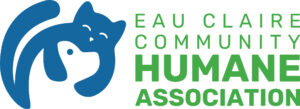
The Eau Claire Community Humane Association
The mission of Eau Claire Community Humane Association (ECCHA) is to be a voice for all animals by providing education, resources, support for the community and compassionate care for homeless animals until they can be placed in forever homes. We emphasize coordinating with other organizations to promote animal welfare.
Animals truly need the voices of their human advocates. All too often, when the interests of man and animal are in conflict, man prevails. Animal welfare refers to the state of an animal in relation to its ability to cope with its environment. It encompasses both the physical and mental well-being of an animal, as well as its ability to engage in natural behaviors and its freedom from unnecessary pain, suffering or distress. Animal welfare focuses on ensuring animals are treated with respect and compassion and that their needs are met in a way that allows them to live full and healthy lives. ECCHA is dedicated to educating the public about the need for the humane treatment of all animals and responsible pet ownership.
ECCHA is the only “open admission” shelter within a 100-mile radius of Eau Claire County. This means we take any animal considered domesticated regardless of age, breed, temperament, medical status or behavior. We serve them all – from dogs, cats, small animals, reptiles and chickens to goats, horses…and more.
Staff
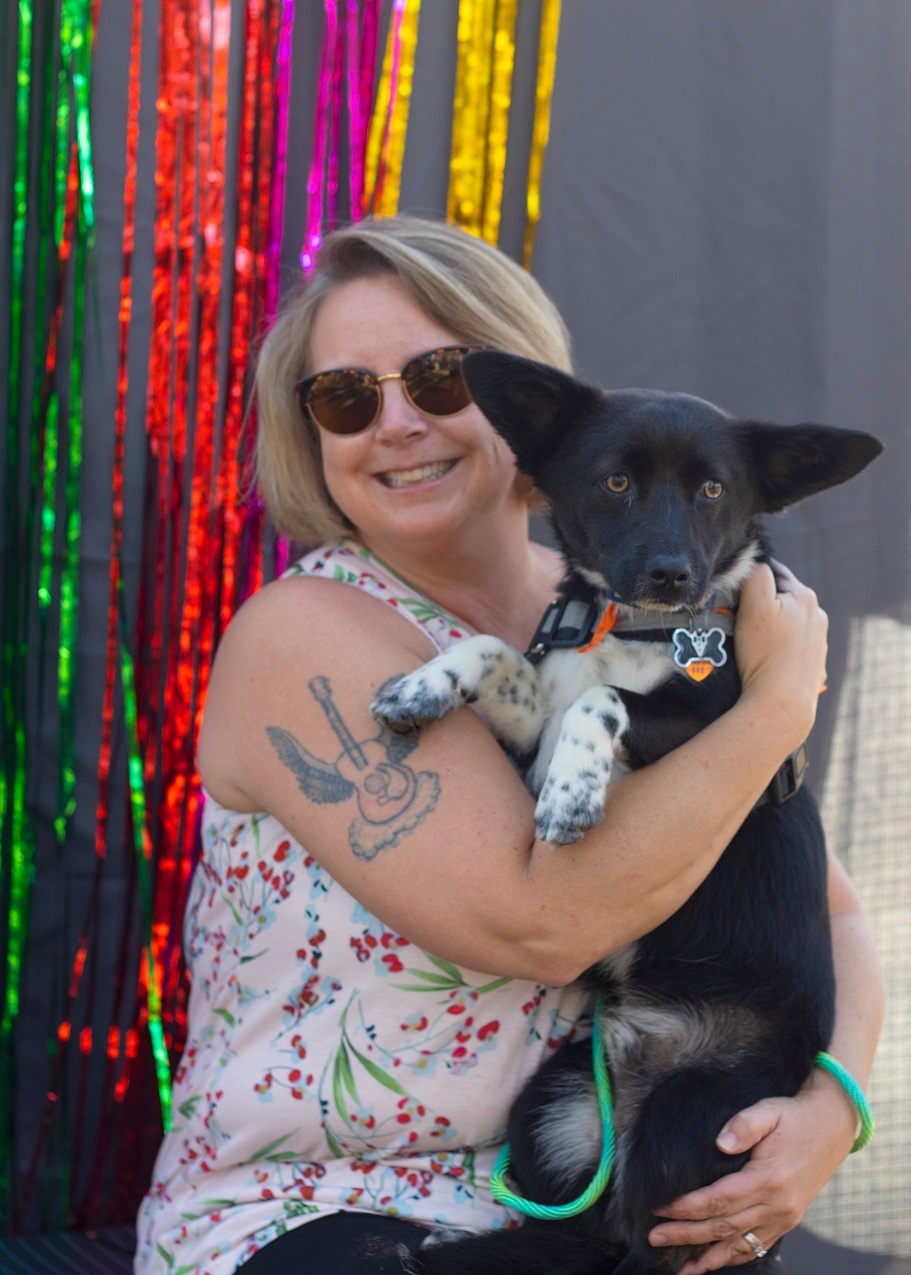
Shelley Janke
Executive Director

Dr. Amber Gooden
Shelter Veterinarian
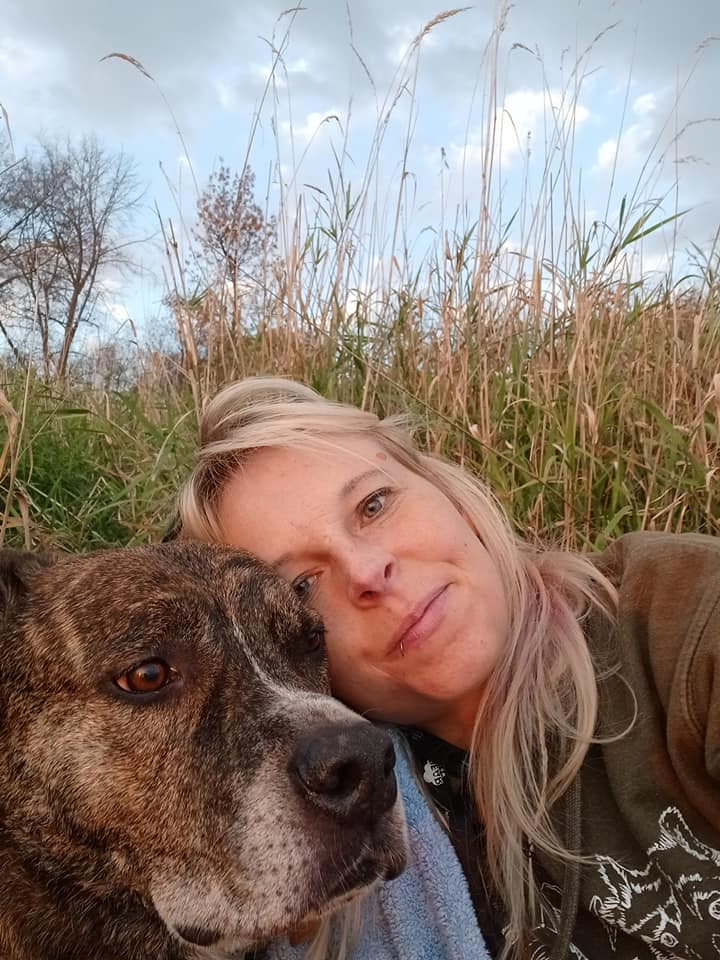
Liz Berg
Shelter Vet Tech
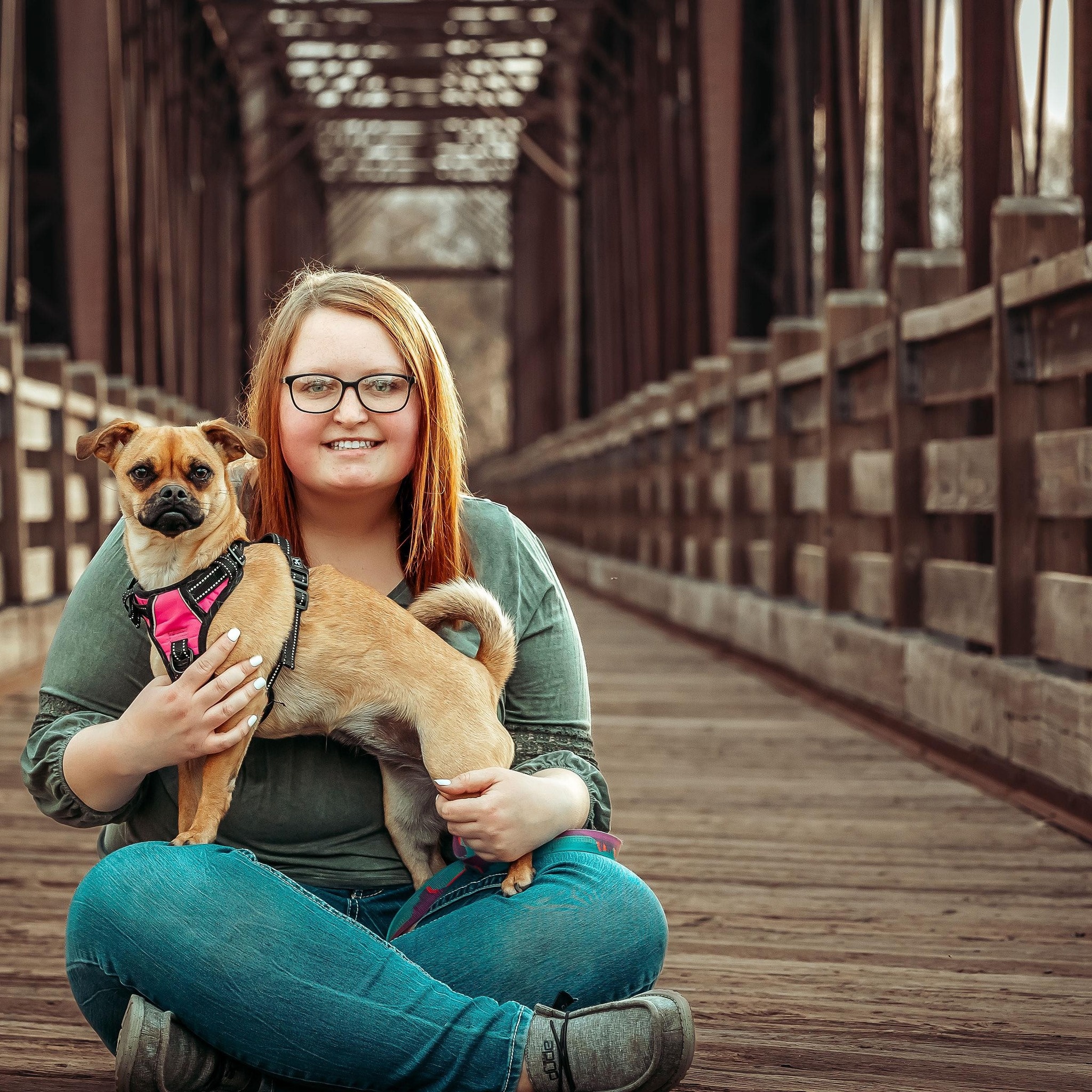
MaKayla Johnson
Humane Officer
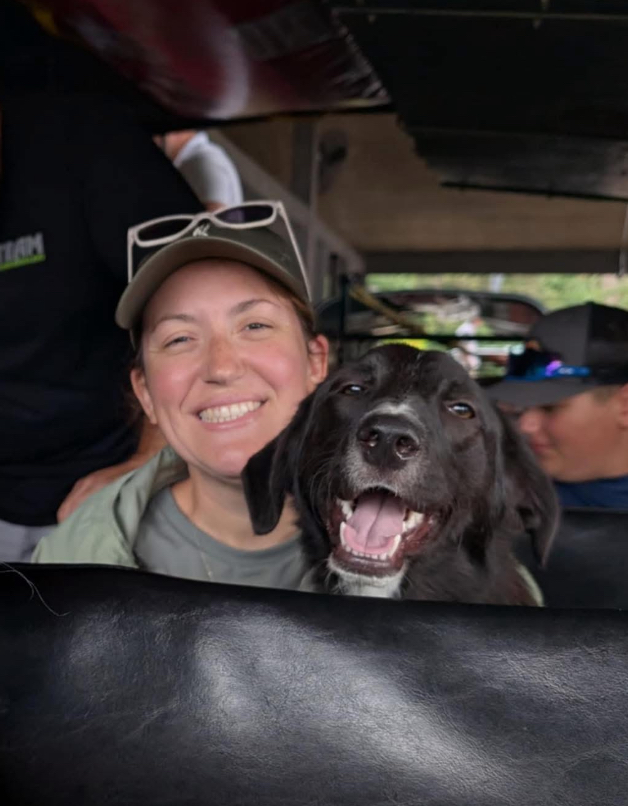
Angie Adolphson
Director of Customer Care
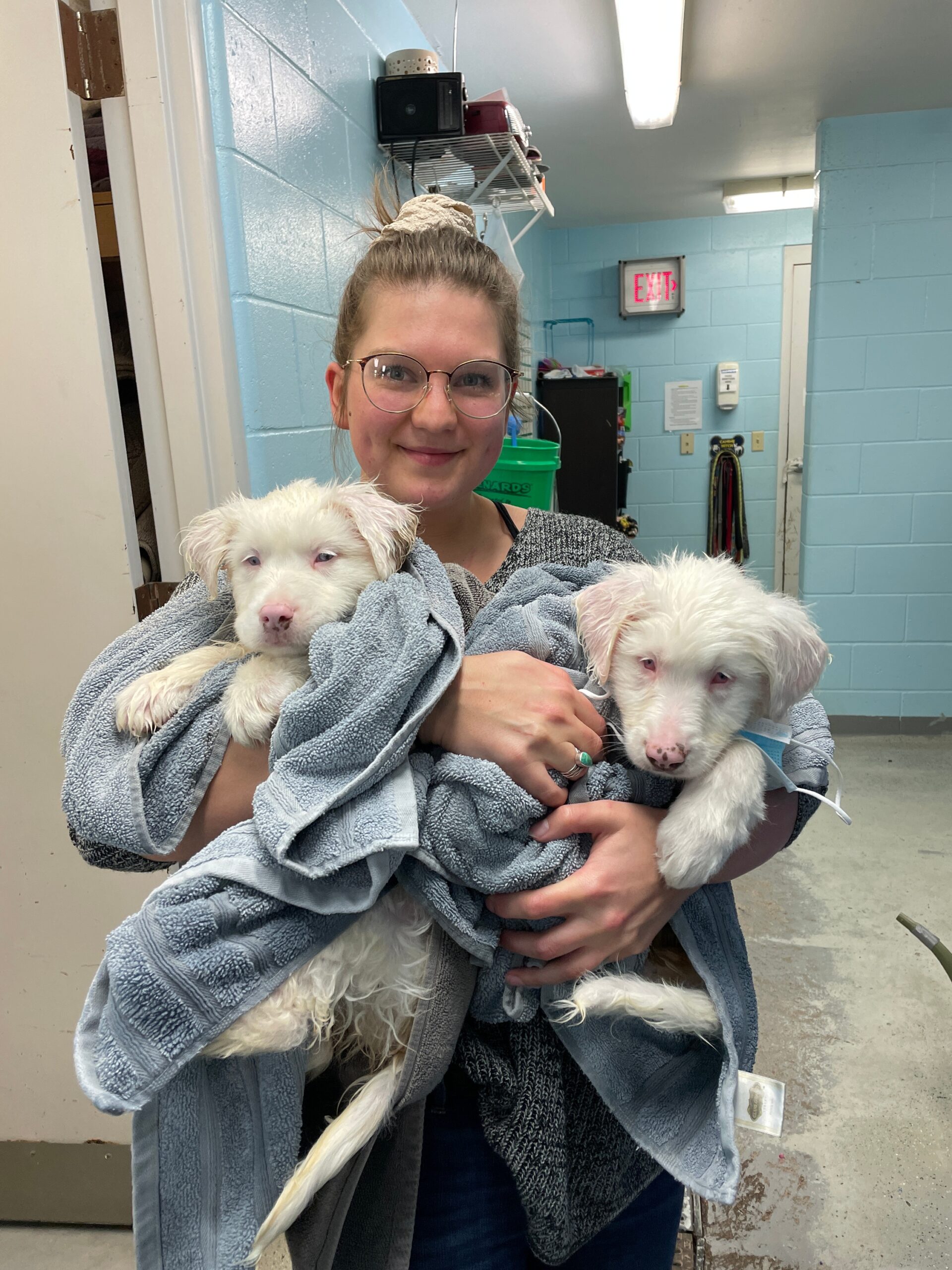
Addie Erdmann
Marketing & Development Director
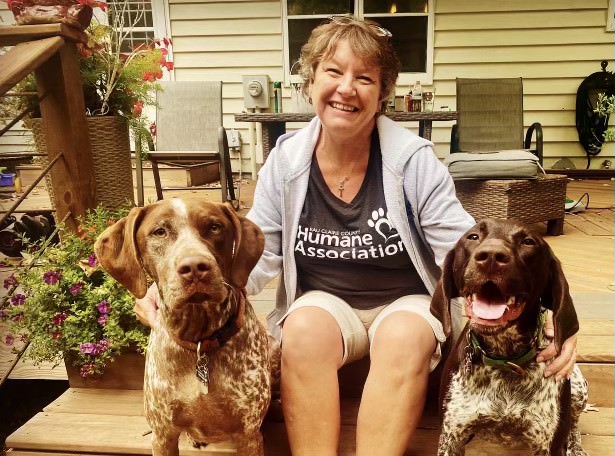
Tracey Newhouse
Director of Community Outreach & Volunteer Services
Gavin Wortman
Facilities Manager
Board of Directors
Jennifer Severin
President Jennifer has been a board member of ECCHA for several years. She is both a cat and dog person. Currently, she has three dogs! She has nonprofit experience and a business background and she hopes to use those skills to help the shelter continue to provide vital services to the animals and people in our community.Kevin Renley
Vice President Market and Johnson, Inc. Kevin Renley joined the board in 2023 but has been a volunteer of ECCHA for a few years with his two daughters. Kevin is a big dog lover - you will often find him volunteering his time to walk dogs in the afternoon at the shelter. He and his family just adopted a puppy from ECCHA!Heidi Conner
Treasurer McMahon, Schleifer & Wood, LLC Heidi joined the ECCHA board in 2023. She is a big dog lover and even adopted one from ECCHA over 13 years ago! She is involved in the shelter because she values that ECCHA teaches responsible pet ownership in the community.Shelley Scott
Secretary Aaniie, Inc. Shelley Scott joined the board in 2021, and is the Board Secretary and Chair of our Education Committee. With a strong background in marketing, communication, and software, she has always loved animals, and a passion for helping the community. Shelley has a rescue dog and 3 cats at home.Dr. William Heth
Dr. William Heth is a retired medical professional from Mayo clinic. He has always been an animal lover and advocate and has served on the board for many years. You will often see him volunteering his time at the shelter walking dogs, doing dishes or helping us clean!Patti Monson
Patti Monson joined the board in 2021 and has been involved with ECCHA for many years prior. She is a huge cat lover and often uses her creativity to help with many ECCHA events and promotions. Patti is on the planning committee for our Annual Cat's Meow Gala in the Fall.Katie Luther
Katie Luther joined the board in 2021 and works at RCU. She is a huge dog lover and has been a supporter of ECCHA for many years! Katie and her husband recently started fostering through ECCHA, and they love it!Chris Glenz
Chris Glenz joined the board in 2023, but has been involved with ECCHA for several years serving as our IT person. Chris has always been passionate about animals and animal welfare and is excited to be more involved in the shelter!April Lande
April joined the ECCHA board in 2024. She has been practicing law in Eau Claire since 2018 and is an avid animal lover!Christina Thrun
Christina started her board term in 2024, though she has served 2 terms in the past, even as our president at one point! She is a huge dog lover and is excited to continue to support ECCHA as a board member again.Jim Schuppel
Jim started Mr. Kitty's Cat Cafe in 2024 with his wife, Shelli. They have always been animal lovers, but decided to partner with ECCHA to help find cats loving homes. They have 3 resident cats at the cafe, and up to 15 other adoptable cats from ECCHA at a time!Shelter Stats
1604
1,135
245
337
97%
5,728
Our History
Summer 1968
Summer of 1974
March 1975
May 24th, 1978
February 29, 1985
January 1986
1993
October 1998
2004
2005
Spring 2016
Summer 2016
Fall 2016
Spring 2017
January 2018
June 2018
October 2018
June 2021
May 2022
April 2023
July 2024
July 2024
Position
A Commitment to Animals
We wish to contribute to a better life for animals and to inspire awareness of and compassion for all living beings. We aspire to provide a safe haven, loving attention, nutritious food, meticulous health care and daily exercise to each and every animal in our care. We do our best to secure each animal in a permanent, loving and responsible home. We carefully attempt to match companion animals with caregivers to attain a quality and nurturing lifestyle for both pet and owner.
Much of our time and energy goes toward ending the specific problem of pet overpopulation. We will be active in our community educating the children in our schools, bringing the community together with fundraisers and pet-friendly events and ensuring that each pet owner has all the resources and information necessary to care for their pet.
Positioning Statement on Euthanasia
ECCHA is committed to reducing euthanasia. We believe every animal deserves an opportunity. Our goal is to serve animals throughout their lives, with our programs’ primary focus on ending homelessness and addressing the needs of animals. We strive to do the greatest good (given limited resources) to help the greatest number of animals.
In balancing the welfare of the animals with our responsibility to the public, we recognize not all animals are suitable for adoption. Therefore, when the difficult decision is made to end an animal’s life, we believe compassionate euthanasia by injection is the most humane and dignified method. This difficult decision is made ONLY when all other options have been exhausted, including working with other shelters, raising funds to provide medical care and utilizing our network of foster homes.
Our board and staff are committed to the open admission philosophy, responsibility for using our resources to help animals and finding alternatives to euthanasia.
Positioning Statement on Declawing
The Eau Claire Community Humane Association is strongly opposed to declawing cats for the convenience of their owners or to prevent damage to household property. The only circumstances in which the procedure should be considered are those in which all behavioral and environmental alternatives have been fully explored, have proven ineffective and the cat is at risk of euthanasia.
Cats’ claws play a vital part of in their ability to defend themselves. They use them to capture prey and settle disputes with or escape from other animals or people who are hurting or threatening them. Furthermore, as part of their daily rituals, cats instinctually pull the claws on their front paws through surfaces that offer resistance. They do this to mark their territory, exercise muscles usually used in hunting, relieve stress and remove worn sheaths from their nails.
Declawing of cats, or onychectomy, is the amputation of the last digital bone, including the nail bed and claw on each front toe. If the surgery is performed correctly and the entire nail bed is removed, the claws cannot regrow. The surgery involves the risk of anesthesia, excessive bleeding and postoperative complications (including infection) and is accompanied by pain that may last several days to much longer unless appropriate pain control is provided.
Various alternatives exist to manage natural scratching behavior and prevent injury from cat scratches. These include having a cat’s nails trimmed regularly in order to blunt the tips. Providing scratching pads, posts, and other appealing structures for the cat is another great way to intercede. You can use behavior modification techniques to induce the cat to use them. Deterrents such as double-sided tape (e.g., Sticky Paws ®) can be used to protect furnishings, and covering the claws with soft temporary pads (e.g., Soft Claws ®) is another excellent alternative.
Owners should also be familiar with cat behavior and proper handling techniques to avoid being scratched. Because declawing has not been proven an effective method for improving other behavioral issues, including aggression towards people or other cats, it should never be used as a behavioral remedy (or as a preventative measure). Instead, behavior concerns should be discussed with trained behavioral experts, who can recommend effective techniques for managing feline behavior issues. Therefore, we believe that it is the responsibility of animal welfare advocates to inform individuals of alternative, nonsurgical methods to address destructive clawing, including referral to a veterinarian or animal behaviorist.
Join Our Crew
Make your love and commitment to animal welfare your career.
To see all of our open job listings, see here
FAQs
Contact Us
Whether you’re looking to adopt, volunteer or simply want to chat about your love for animals, we’re all ears (and paws). Contact us today!

